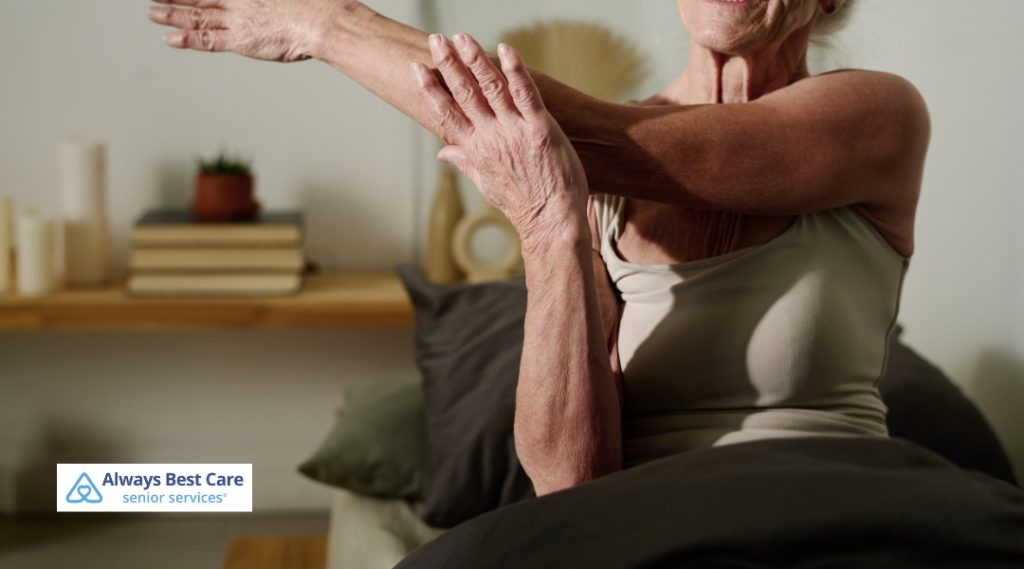Sleep Soundly: 6 Tips to Improve Rest for Seniors in West Jordan, UT

For seniors, restful sleep becomes harder to come by. Whether it’s waking up frequently, feeling wide awake at 3 a.m., or tossing and turning for hours, sleep disruptions can affect mood, memory, and overall well-being.
The good news is that sleep can improve at any age, with the right habits, environment, and support. These six practical tips are designed to help seniors enjoy deeper, more restorative sleep.
Table of Contents
Understanding Why Sleep Gets Harder With Age
As we age, it’s common for sleep to feel less refreshing. Many seniors find themselves waking up earlier, struggling to fall asleep, or waking frequently during the night. These changes aren’t just frustrating—they’re linked to natural shifts in the body and lifestyle.
One of the main reasons sleep becomes more difficult with age is a decrease in melatonin production. This hormone helps regulate the sleep-wake cycle, and lower levels can make it harder to fall asleep and stay asleep. Seniors also tend to experience lighter sleep and spend less time in the deep, restorative stages that leave us feeling truly rested.
Health conditions like arthritis, heart disease, or sleep apnea can lead to discomfort or interruptions. The need to use the bathroom more frequently during the night is also common. Emotional factors such as stress, grief, or loneliness may also surface more strongly at night, keeping the mind active and alert when it should be winding down.

Tip 1: Stick to a Consistent Sleep Schedule
Keeping a steady sleep schedule is one of the most effective ways to improve sleep quality, especially for seniors. Going to bed and waking up at the same time each day—even on weekends—helps reinforce the body’s natural sleep-wake cycle.
Over time, your body learns when it’s time to rest and when it’s time to rise, making it easier to fall asleep and wake up feeling refreshed. Pairing this routine with a calming wind-down ritual, such as reading, stretching, or listening to soft music, can further ease the transition to bedtime. A predictable rhythm not only supports better sleep, but it also adds a comforting sense of structure to daily life.
Tip 2: Optimize Your Sleep Environment
Your bedroom should be a restful retreat, free from distractions and designed for comfort. A cool, dark, and quiet space promotes deeper sleep. Consider using blackout curtains, a white noise machine, or soft lighting to create a soothing atmosphere. The right mattress and pillows can reduce physical discomfort, especially for seniors with joint or back pain.
It’s also essential to remove clutter and ensure the room is safe for nighttime movement—clear pathways and gentle nightlights can help prevent falls. By shaping the environment around sleep, you give your body and mind every chance to relax and recharge.

Tip 3: Eat and Drink With Sleep in Mind
Your evening diet can either support restful sleep or sabotage it. Heavy meals, caffeine, spicy foods, and alcohol close to bedtime can lead to indigestion, restlessness, or frequent awakenings. Try to finish your last meal at least two to three hours before going to bed. If you need a light, healthy snack before bed, choose something that promotes relaxation, such as a banana, whole-grain crackers, or warm milk.
Also, be mindful of your fluid intake in the evening—too much water late in the day can cause frequent nighttime trips to the bathroom. Smart food and drink choices can help your body naturally settle into sleep and stay asleep longer.
Tip 4: Stay Active During the Day
Regular daytime activity is one of the most effective ways to improve sleep at night. When seniors stay physically engaged—whether through walking, stretching, gardening, or light exercise—it helps regulate the body’s internal clock and encourages deeper, more restful sleep.
Activity also reduces stiffness, boosts mood, and relieves stress, all of which support better sleep quality. Just be sure to avoid vigorous exercise too close to bedtime, as it may be overstimulating. The goal is to keep moving throughout the day so your body naturally feels ready to rest when evening arrives.

Tip 5: Manage Stress and Relax Before Bed
A calm mind leads to a restful night. Many seniors find that worries or overthinking become louder in the stillness of evening, making it harder to drift off. That’s why building a relaxing bedtime routine is so important.
Gentle practices like deep breathing, soft music, meditation, or journaling can help quiet the mind and ease tension. Keeping electronics off an hour before bed can also prevent overstimulation from screen light. These simple rituals signal to your brain that it’s time to slow down, helping to promote a smoother transition into sleep.
Tip 6: Review Your Medications With a Doctor
If you’re doing everything right but still can’t sleep well, your medications might be playing a role. Some prescriptions, such as those for high blood pressure, asthma, depression, or even over-the-counter remedies, can interfere with sleep by causing drowsiness during the day or restlessness at night.
Diuretics, for example, can lead to frequent nighttime bathroom trips. It’s important to talk with your doctor or pharmacist about any sleep concerns, as adjusting the timing or dosage of medications might help.

How In-Home Care Helps Seniors Sleep Better
Caregivers help establish soothing bedtime routines that signal it’s time to wind down, such as dimming lights, assisting with personal care, preparing a light snack, or reading aloud. This kind of structure helps regulate the body’s natural sleep rhythms, making bedtime feel safe and predictable.
For those who wake often during the night—whether due to health concerns, medication needs, or disorientation—having a caregiver nearby offers immediate comfort and assistance. From helping with mobility and bathroom visits to simply being a calming presence, in-home care can reduce nighttime stress and prevent accidents.
Daytime routines also play a role. Caregivers encourage physical activity, support healthy meals, and ensure medications are taken on schedule—each of which helps set the stage for better sleep later on.
Wake Up Refreshed With Personalized Support From Always Best Care of West Jordan!
At Always Best Care of West Jordan, we understand the challenges that come with aging, including sleep difficulties. Our compassionate caregivers can help establish a calming nighttime routine, assist with daily activities, and provide companionship to reduce stress and promote relaxation.
If you or a loved one is struggling with insomnia and needs extra support, we are here to help. Contact Always Best Care of West Jordan at (801) 679-2623 to schedule a care consultation and learn how our in-home care services can improve your quality of life. A restful night’s sleep is just a call away.





